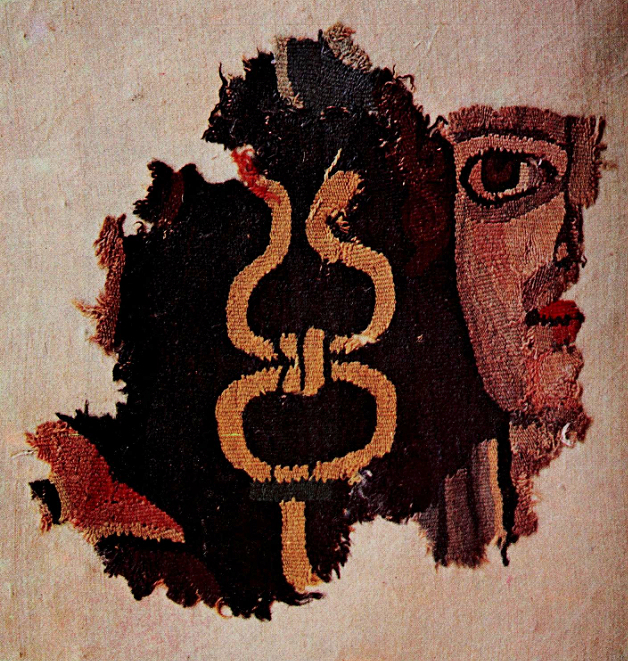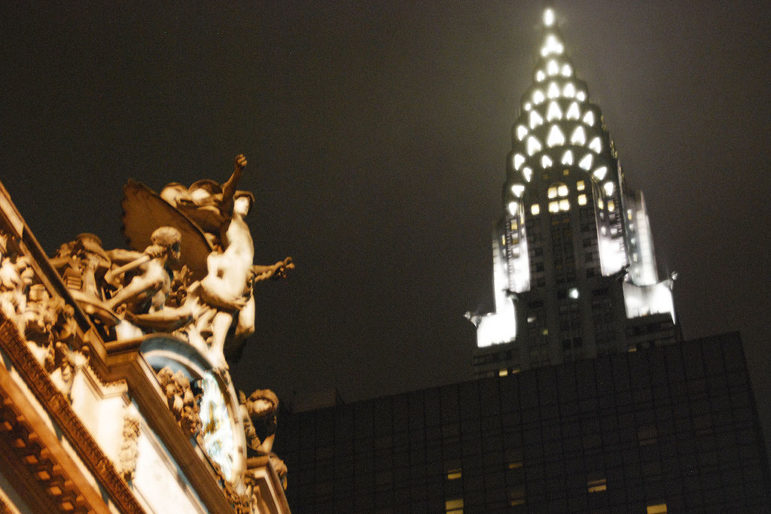
There were nine inches of snow on the ground when my package came in. I knew this because I’d already walked through those nine inches once on my way back from my partner’s before the text caught up with me. He’s here, with a photo of a box, a shoe next to it for scale. A large box.
I paused next to the door, one boot already off, and considered my options. The best plan would be to leave the package for a couple of days. We had the shipment delivered to Bauer’s for a reason – it could stay there until the ice melted and the walk between our apartments was a little less treacherous. That wouldn’t be an issue. It would be safer.
I bent to re-lace my boots. My message to Bauer was quick: on my way.
The box already looked rough from its trip across the Atlantic when I received it, and the snow didn’t help. By the time I reached my door again, the box was tearing too much to make it safely up the stairs. I wheeled it back to the dumpster instead, shedding bits of packing and wet cardboard as I pulled him out of the careful nest they’d sent him in. I carried him the last leg of the trip, pressed against my chest, careful not to put too much pressure on him. He was too precious to ruin, this late in the game.
I’d seen him at the British Museum years ago, on my first trip out of the States. As often happens to me, I’d had less than two hours to drink in a place I’d long dreamed of visiting, and my memories of that time are a frenzy of rooms, prioritized in order of collection. His was an afterthought, a hall between one highlight and the next. The 18th century might as well have been modern art as far as I was concerned; I was there to see the ancient material. So when I say he was arresting, I mean he stopped me in my tracks, right in the middle of a just-slow-enough-to-be-polite canter between the Hellenic gallery and ancient England.
The gods I know best come from cultures that carved images out of wood or inscribed them in simple bronze lines. I do not expect gods to have faces, do not expect to catch an eye and grin in recognition, pulled across a crowded room. I understand gods as suggestions and feelings and ever-changing features. Looking at the particular shape of a mouth and thinking, “that’s it, that’s his,” still fills me with a sense of vertigo. That moment sticks out in my mind as a still and shocking moment in a whirlwind trip.
Years later, I set him on my table and pulled away the wrapping. I saw the same face, the same laughing eyes. “Hello, handsome,” I murmured, checking him for chips or cracks, but there were none. He was perfect, my own version of the face I’d looked for in railway stations and post offices and museums across the world.
Standing in my kitchen, trying to figure out where to actually put a bust of this size – I’d have to rearrange my altar, maybe all of my altars – it struck me that the feeling in my chest when I looked at Hermes was familiar.
“Oh no,” I muttered – or maybe I didn’t say anything at all. Maybe I just sat down, and let the panic roll in like waves. “No, no, no. Crushes are for humans. I’m not crushing on a god. I won’t.”
It occurred to me that crushes were usually quick, fierce things. Long-term conditions, the kind where someone keeps a photograph of a friend in their pocket and looks for them first in a crowd, those had other names.
It is a very strange feeling, avoiding a statue’s eyes.

Hermes and caduceus, Loulan tapestry, 3rd century CE [public domain]
All of the language I have for relationships is body-bound, delimited by the ways people influence each other. “Father” and “mother” – bodies that created mine. “Aunts” and “uncles” – bodies that share my blood. If bodies aren’t involved, if I know someone through word and thought and deed, I can be a “friend,” or have a “teacher” – but sometimes relationships slip past that into something more intimate, a different kind of knowing. I don’t have a lot of words for that.
Spirits add an extra level of complication. I interact with spirits directly, without the usual framework of eyes and mouths and hands. When those things appear, in a vision or a journey, they are metaphors, gestures toward some greater truth. I think of blisters on knuckles, and I remember Dr. Burton’s Ancient Philosophy class, my first attempt to understand “hand” as an ideal, the concept that everything we call “hand” refers to. I ask for an image to speak to, and I get jokes about the idea of images – reflections in imaginary glass, variations on the absurd or obscene, references pulled from fairy tales and pop culture.
What is the word for someone who knew the spells I spun to protect my childhood bed, and gave them back to me, carefully wrapped, when I could not remember how to set down boundaries anymore? That is too close, and too alien, to be caught in any relationship I know.
I had given up on finding words for them at all, for a while. I think about my life in terms of relationships, and these relationships were undeniable and true, like any other, odd and specific and unnameable. While I sat at my kitchen table on an unremarkable day, that shifted a little. Here, at last, was a feeling I had words for.
The next few days are a blur of panic in my memory. It had never occurred to me to talk about a god in terms of romance, of longing, of casual and joyful love. But not thinking about something doesn’t stop anything from happening – it just makes it harder to recognize. This was less a “falling in” than a looking up. I realized I had felt this for years, that it was built into my practice itself.
There is a reason so many of our metaphors for love are based in war and pain. I felt this as a terror – a fear that my emotions were nonsensical at best and actively deluded at worst, a fear that they would discredit me with my peers, a fear that my relationships, not least the one I have with Hermes, would suffer. Romantic love carries a weight of fear to it that other kinds don’t seem to.
“I think I love him,” I admitted, first to myself and then to my partners, my friends, the Witches I know who interact with spirits the same way I do. It seemed like a huge admission, a guilty plea. Despite the myths, the mystics, and the poets across traditions who had spoken of this kind of love, it seemed like a personal flaw, like I had transgressed some rule of propriety.
“I don’t understand,” one friend responded. “Am I supposed to be surprised?”

A statue of Hermes atop Grand Central Station, with the Chrysler Building in the background [Jill Scarson, Wikimedia Commons, CC 3.0]
All of this is reflection on a much longer story, one that I do not know how to tell. It involves walking into a store called Pathways and walking out with a statue for my nascent first altar: Hermes, posed on a cloud, mid-motion. That altar convinced my roommate to live somewhere else, and it changed my path, took me out of my graduate school program and moved me to Chicago. It involves wandering through strange cities, driving across many states, showing up at exactly the right moment to deliver a long awaited package or an unexpected phrase. There are a thousand memories connected to it, both meaningless and shattering, a dozen coincidences that left the taste of good humored brashness in the world around me. It involves knowing, instinctively, that no matter what gods enter and leave my life, when I close my eyes for the last time, there will only be one waiting to direct me on the next leg of the journey.
I have never been able to explain why I love someone. It is a thing that just is, like the ever-present tension of my muscles against my bones. Judging it is a false start, a useless gesture towards a control I cannot have.

The author’s statue of Hermes, a black sculpture against white and blue walls; after Jean Baptiste Pigalle, 1742 [L. Babb]
Nothing changed. Everything changed. That’s how love works.
I moved the altar, set it next to the window, beside the ancestors. The new statue of Hermes changes as the day progresses, the light casting shadows that change his expression, show him off to one degree or the other. I think about Pygmalion, and laugh at the paradox of the divine made into stone.
The days are getting warmer, here, and I am going walking more often. Some days, as I’m wandering down some alley, the world aligns into a joke, and I adore it.
THE WILD HUNT ALWAYS WELCOMES GUEST SUBMISSIONS. PLEASE SEND PITCHES TO ERIC@WILDHUNT.ORG.
THE VIEWS AND OPINIONS EXPRESSED BY OUR DIVERSE PANEL OF COLUMNISTS AND GUEST WRITERS REPRESENT THE MANY DIVERGING PERSPECTIVES HELD WITHIN THE GLOBAL PAGAN, HEATHEN AND POLYTHEIST COMMUNITIES, BUT DO NOT NECESSARILY REFLECT THE VIEWS OF THE WILD HUNT INC. OR ITS MANAGEMENT.
The Wild Hunt is not responsible for links to external content.
To join a conversation on this post:
Visit our The Wild Hunt subreddit! Point your favorite browser to https://www.reddit.com/r/The_Wild_Hunt_News/, then click “JOIN”. Make sure to click the bell, too, to be notified of new articles posted to our subreddit.